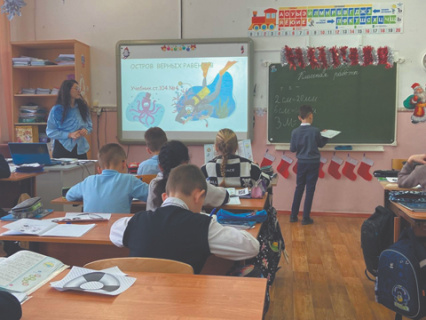
What is our life? The game! And it really is. Mathematical game theory can be used to describe almost any relationship: between people, people and an enterprise, an enterprise and a state, a state and people. But it’s not that easy to describe. Some knowledge will also be required from readers.
And here is an obvious example. The actions of the new US administration look like games even to the naked eye. Donald Trump conducts his games with different players in different ways: with some it is a positional exchange of moves, while others are under severe pressure. All these behaviors can be modeled within the framework of game theory and even partially calculated using these models. That’s what many analysts do.
If game theory is so popular in economics (not one or two, but a good dozen Nobel laureates in this field have received this prestigious prize for research in the field of mathematical games), then why is there not a word about it either in mathematics textbooks or in social studies programs?
My opponents will immediately say that this is too difficult for children. Good. I’ll give you a simple example. Two bandits share unequal spoils. Let there be money and gold jewelry in it. Each of the robbers wants to get at least half of it. How can they do this without killing each other? Game theory provides the answer. Let the first robber divide the loot as he considers fair, and the second one chooses any of the shares. Formally, no one can challenge such a division. However, the former’s position is worse, as the latter has the final choice. Is it very difficult? Then let’s look at the school textbooks.
With the tenacity of a woodpecker hammering into a tree, schoolteachers hammer trigonometric formulas into the heads of 10th grade students. There are many of these formulas. There are also exotic types of triple and half angles, sums and differences of angles, and many others. There are tasks for such functions in the Unified State Exam (task 13 and more). There’s quite a lot to remember. Is it necessary?
One of my analytically inclined students once asked the question: what is a negative angle? Indeed, if we ignore the trigonometric refinements and clockwise rotations along the line of the same unit circle, we get an absurdity.
In geometry, an angle is a shape consisting of two rays emanating from a single point. And the corners can be sharp, straight, obtuse and unfolded. At the same time, their degree measure does not exceed 180 degrees. By the way, this is also true for angles representing the arc functions of trigonometric functions (the arcsin varies from minus 90 degrees to 90, and the arccosine from 0 to 90 degrees).
All other “angles” after rotations along a single circle become sharp, straight, obtuse, or expanded. And is it really important to memorize how to count these angles and their trigonometric functions using formulas? At least at school?
I think it would be possible to limit ourselves to one circle from 0 to 360 degrees and study trigonometry for all students on it. But those students who choose technical specialties could well continue to study various abstract angles already at the institute. Lessons freed from trigonometry could be used to learn the basics of game theory. After all, they introduced probability theory into the mathematics course. And even the Unified State Exam included tasks on this theory (tasks 4 and 5 of the profile level).
What would I personally suggest to include in the school course? Matrix games with the so-called zero sum, when the gain of one player is strictly equal to the loss of the other player. An example of such a game is extremely simple: the seller’s trade with the buyer when setting the price of the product being sold. Bimatric games can also be useful, when two partners choose the best option for cooperation, but each of them wants the best conditions for themselves. Finally, the game with “nature” deserves attention, when the second player is indifferent to his winnings and acts as he pleases, and the first player seeks to increase his winnings taking into account the possible moves of the second player.
I am aware that such global changes in school mathematics require time, effort, money and desire. But still, we are witnessing a dramatic change in the world order in just a few months. It is possible and necessary to optimize your behavior in various conditions, choose the best strategies and calculate possible consequences using games. And it would be good to teach this already at school. Otherwise, intuition can fail.
